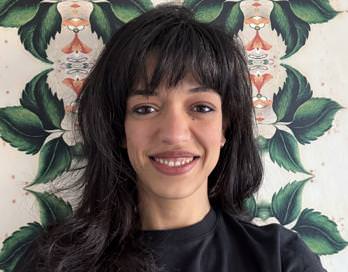We invite proposals for papers offering critical perspectives on AI and the environment, AI and society, and the political economy of AI. We welcome proposals from all disciplines.
The symposium is part of the BRAID project Sustainable AI Futures, which is mobilising interdisciplinary perspectives on AI and the environment, including the social life of AI environmental governance tools. The symposium will take place on 18th September 2025 at Goldsmiths, University of London. Please submit a 300-word abstract via this form by Friday 11th July 2025. We aim to send notifications of acceptance by Friday 25th July 2025.
The rapid expansion of AI and computational infrastructure raises critical questions on whether we are governing AI responsibly, and if that is even possible at all. Contemporary governance regimes reduce social and environmental impacts to mere issues of quantification of harms and management of resources. Even if we track down an elusive number for its carbon emissions or water usage, how can we reconcile that with AI’s complex, messy and highly uncertain social impacts? What are AI’s sociopolitical effects, and how do we begin to notice, imagine, manage, or measure these effects?
This symposium aims to consolidate researchers approaching questions of AI’s implications for sustainability, public interest technology, and economic justice across multiple disciplines. While there is a proliferation of research and public discourse around the central role that AI is playing in governance and infrastructure across multiple political contexts, the siloed approaches that exist across these disciplines have not been able to account for the complex global dimensions of AI politics and contestation across its value chain. This event invites researchers approaching these questions from different angles to propose ways in which we can come together to assess AI’s impacts in more systematic and comprehensive ways.
As a response to the current wave of AI development and deployment, concepts like responsible AI, sustainable AI, and AI governance have proliferated to manage these impacts at the point of design and consumption. We invite exploration of the nuances of these different approaches, as well as different national and regional contexts. However, despite the best intentions, these practices often end up reinforcing the very logics that they seek to question due to a lack of comprehensive assessment of global AI supply chains. As AI becomes more embedded in collective economic futures, how deeply are its core logics entangled with structural shifts – from green capitalism and the twin transition, to austerity, war, and accelerationism?
If alternative visions of AI are possible, what do they look like and what questions do they raise? What could AI look like if designed and operationalised outside dominant commercial and geopolitical frameworks? What possibilities emerge when we centre justice, sustainability, democracy, and decoloniality in AI development? How might the answers be different in different places around the world?
If AI should be resisted rather than governed, then where, how, by whom, with what resources and strategies? What precedents and projects of organising a resistance to AI exist, and what can we expect from the future? Where are the leverage points? If we reject the idea that AI is inevitable, what are the alternatives, and what new ethical, political, and epistemological questions do such alternatives raise?
We invite scholars who centre issues of power, equity, (in)justice, governance and resistance in AI infrastructures in their research to submit a 300-word abstract for this symposium. If accepted, you will be expected to give a 20-minute presentation.
We expect to invite some of those who present to contribute articles to a special issue or an edited collection.
Please submit your proposals via this form, and direct any queries to d.mcquillan@gold.ac.uk.
If you’d like to be kept informed about future opportunities events from the Sustainable AI Futures project, you can sign up here.
The symposium will be in-person; depending on interest, we will accommodate online presentations or an online pre- or post-event.
